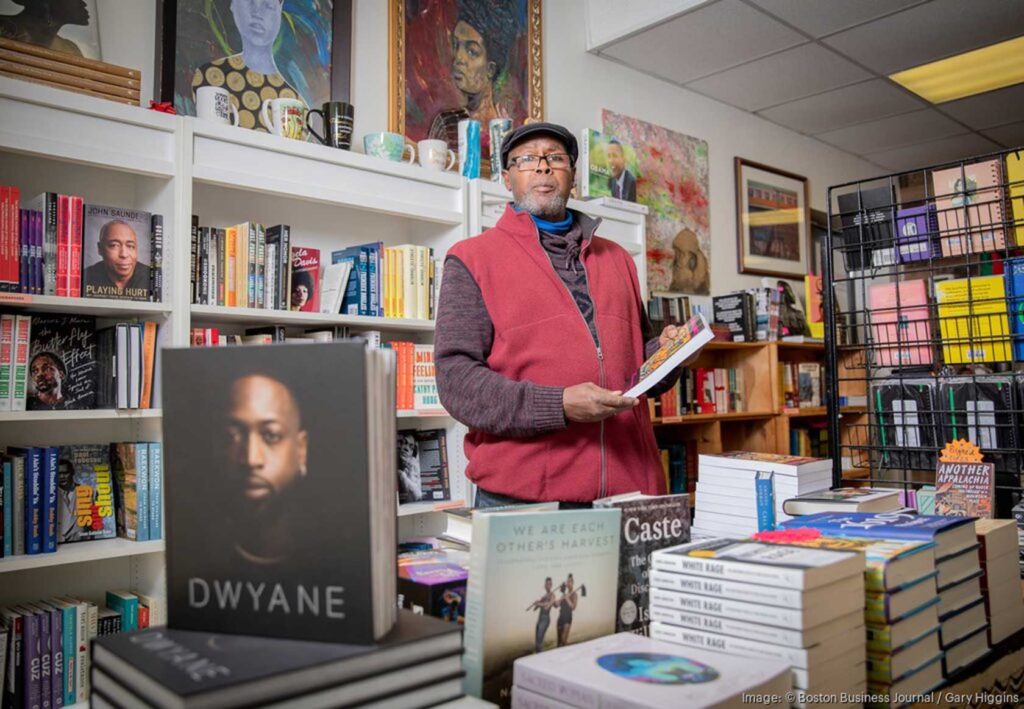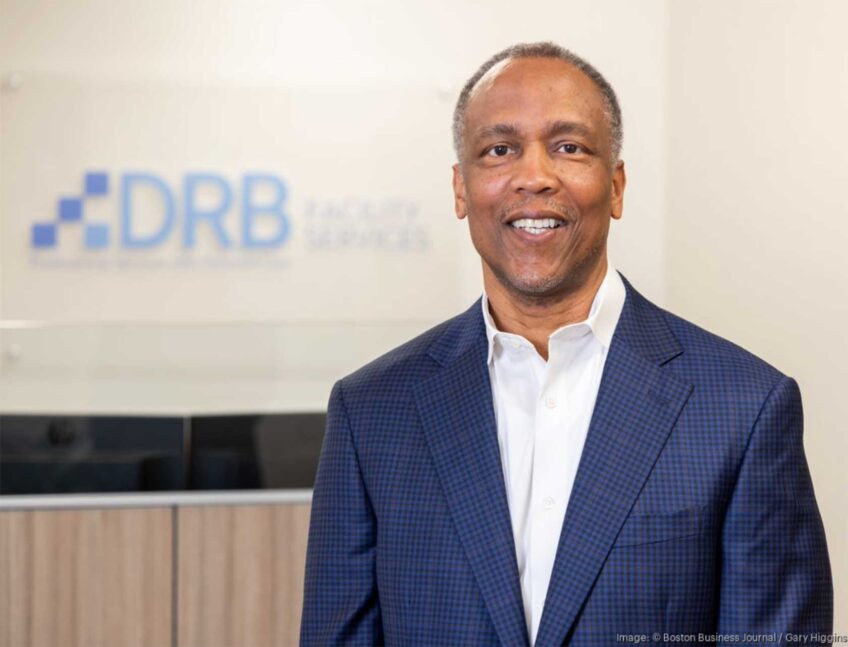After 2020, Nubian Square’s Frugal Bookstore reminds customers, ‘We’re here’

In 2020, the Boston Business Journal profiled several small businesses that were struggling to survive the pandemic. Four years later, we’re checking back in with some of them to find out what’s happened since.
Leonard Egerton was managing a group of Concord-Carlisle High School students visiting Frugal Bookstore recently while on the phone for an interview. He was also assisting customers looking for the latest bestsellers and finalizing logistics for an event the store was hosting that evening.
Such day-to-day chaos is usual, a testament to the fact that the Black-owned bookstore with a heavy focus on books by and about Black and brown people has remained busy in recent years. Despite that, Egerton said the business hasn’t maintained the same vitality it saw during the early days of the pandemic.
Following the murder of George Floyd, social unrest reached a boiling point and consumers were looking to put their dollars into local, small and minority-owned businesses. Frugal was one of those businesses, as online sales jumped from 5% to 60% of total sales, mostly because of an increased interest in race-related books.
“That’s why I always looked at it as an anomaly, because that was not the true sense of the business we wanted or that we would get consistently,” said Egerton, owner and founder of Frugal Bookstore. “It was to keep us in business through Covid. And we appreciate it, absolutely. But it didn’t continue.”
Today, people aren’t coming out in droves as they had before. But Frugal has seen a change in the types of customers coming into the store, Egerton said, which can be attributed to the rise in gentrification in Roxbury.
The gentrification process has been bittersweet, Egerton said. While it has impaired the community in many ways — pushing out some of the people who have called the area home for generations who can no longer afford to do so — it has also brought a different kind of customer that the only Black-owned bookstore in Boston hasn’t been accustomed to.
Following the relocation of the Boston Public School headquarters, which kickstarted other private investment in the area, Egerton said he saw a change in the people in the neighborhood.
“A different kind of bookstore lover is coming into the bookstore. There’s more of a mix of people,” Egerton said. “Who ends up being in the neighborhood? Will they support the bookstore? That’s what we’re waiting to see,” Egerton said.
Online sales at Frugal have also leveled off since Covid, but the events have picked up significantly. Every fourth Friday, the bookstore hosts a spoken word poetry event. Frugal also has a chapter of the Noname Book Club, a Black-owned cooperative book club founded in 2019. From meet-and-greets with local authors to topical panel discussions, Frugal hopes to draw in more people from different areas.
“We’re doing more things to make more people aware that we’re here,” Egerton said.
Egerton started Frugal in 2008 and co-owns the store with his wife, Clarrissa Cropper. Understanding the struggles of operating a small business, particularly as a minority entrepreneur, Egerton is just looking to see another day with Frugal.
“Our goal is to simply stay in business,” he said, “and hopefully be able to pass the business down to our family. It’s as simple as that. We want to be the part of our family that is able to have generational wealth.”
This story appeared in the Boston Business Journal on May 2, 2024.






